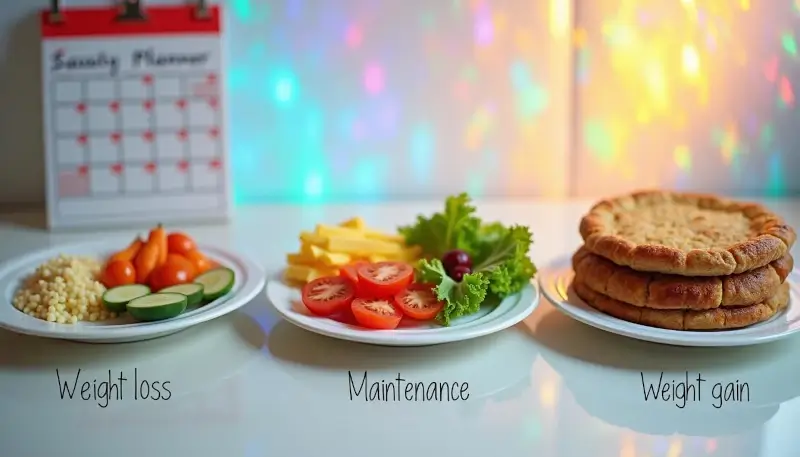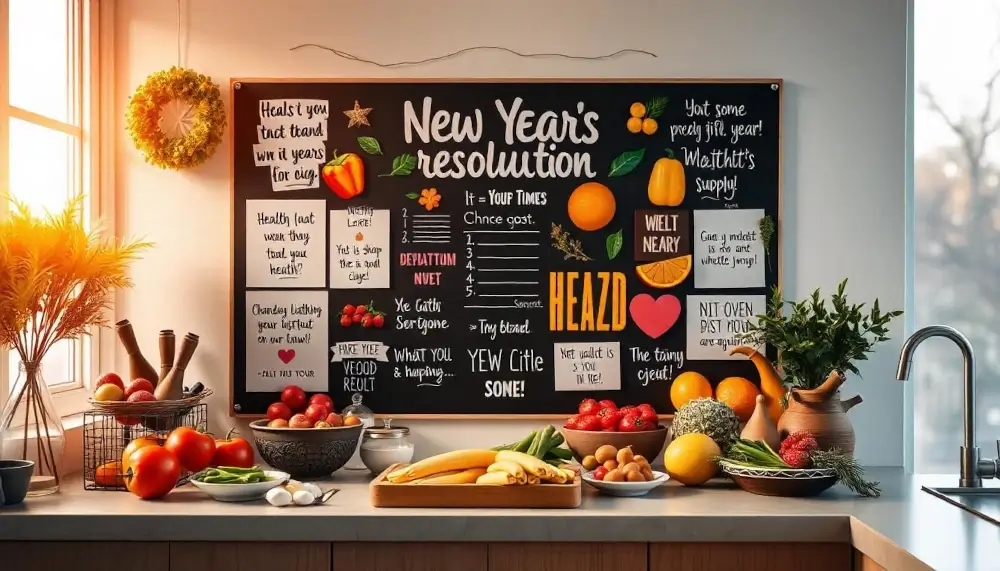
Once upon a time, I found myself standing in front of a mirror, wondering where all those extra pounds came from. It was like they had magically appeared overnight. Sound familiar? We’ve all been there. The culprit? Calories. But wait, calories aren’t evil little gremlins. They’re just units of energy, and understanding them is key to managing your weight and health.
So, how many calories should you be eating? Let’s dive into this light-hearted guide to help you figure it out!
Quick Calorie Calculator: Find Your Daily Caloric Needs

Ever wished there was a magic number that told you exactly how many calories you should eat each day? Well, there is! Sort of. Your daily caloric needs depend on factors like age, gender, weight, activity level, and goals. To make it easy for you, I’ve included a calculator below. Just plug in your details and get your personalized calorie target!
Calorie Calculator
Great, now you know how many calories you should be eating. But how can you make sure you’re actually sticking to it? One handy solution is using the Fitatu app. With it, you can log everything you eat and see exactly how close you are to your target, helping you stay on track and reach your goals more easily.
Setting Your Caloric Goals: Lose, Maintain, or Gain Weight

Now that you know your daily caloric needs, it’s time to set your goals. Whether you’re aiming to lose weight, maintain your current weight, or build muscle, there’s a calorie target just for you.
Calorie Targets for Weight Loss
If you’re looking to shed some pounds, the golden rule is to consume fewer calories than you burn. But how much less? According to experts, a daily calorie deficit of 500-1,000 calories can help you lose about 0.5 to 1 kilogram per week. But don’t go too low! Eating too few calories can slow down your metabolism and make you feel like a tired sloth.
For example, if your maintenance calories (the number you need to maintain your weight) are 2,500, aiming for 2,000 to 1,500 calories a day should set you on the right path.
Calories Needed for Muscle Gain
Trying to bulk up? You’ll need to eat more calories than you burn, but don’t just stuff yourself with pizza and ice cream. Quality matters! Aim for a caloric surplus of 250-500 calories per day to build muscle while minimizing fat gain. Combine this with a strength training program, and you’ll be flexing in no time.
For instance, if you maintain your weight at 2,500 calories a day, increase your intake to around 2,750-3,000 calories to fuel your muscle growth.
Maintaining Your Weight: How Much to Eat
Happy with your current weight? Awesome! To keep things steady, you’ll want to eat just enough calories to match what you burn daily. This number is your maintenance calorie level. Stick to it, and you’ll avoid the infamous yo-yo effect that comes with drastic dieting.
For most people, maintenance calories range between 2,000 and 2,800 calories per day, depending on activity level and metabolism.
Caloric Needs by Gender, Age, and Activity Level

Calories aren’t one-size-fits-all. Your needs vary based on who you are and what you do. Let’s break it down.
Women’s Daily Calorie Requirements
For women, daily calorie needs can range from 1,600 to 2,400 calories depending on age, activity level, and health goals. Younger women and those who are more active may need more, while older or less active women may need less. If you’re a woman who’s aiming for weight loss, a daily intake of 1,200-1,500 calories is common, but it’s essential to tailor this to your individual needs.
Men’s Daily Calorie Requirements
Men generally need more calories than women due to having more muscle mass and a higher metabolic rate. The daily requirement for men ranges from 2,000 to 3,000 calories. Just like women, this varies with age and activity level. Younger, more active men might need those extra calories to keep up with their energy expenditure.
Practical Tips to Control Your Caloric Intake

Managing your calorie intake doesn’t mean you have to live on salads and sadness. Here are some easy and enjoyable ways to keep those calories in check without feeling deprived.
Easy Portion Control Strategies
Portion control is your secret weapon against overeating. Try using smaller plates, measuring your food, and being mindful of serving sizes. When you’re dishing out pasta, for example, aim for one cup cooked – that’s about the size of your fist. Simple tricks like these can help you stay within your calorie budget without even noticing.
Healthy Calorie Swaps
Sometimes, it’s not about eating less, but eating smarter. Swap high-calorie foods for lower-calorie alternatives that still satisfy. Love creamy pasta? Try zoodles (zucchini noodles) with a light sauce. Craving something sweet? Opt for fresh fruit instead of a sugary dessert. These small changes add up and make a big difference.
Frequently Asked Questions on Calories
You’ve got questions, and I’ve got answers! Let’s clear up some common calorie conundrums.
Is 1200 Calories a Day Enough?
1200 calories might sound like a nice, round number, but it’s not for everyone. For many people, especially those who are active, 1200 calories is too low and can lead to fatigue, nutrient deficiencies, and a grumpy mood. Always consult with a healthcare professional before going that low, and ensure you’re meeting all your nutritional needs.
How to Adjust Calories for Different Goals?
Whether you want to lose weight, gain muscle, or maintain your weight, adjusting your calorie intake is key. Start by determining your maintenance calories and then adjust based on your goal: cut calories for weight loss, add calories for muscle gain, and stay steady for maintenance. Remember, it’s not just about the number but also the quality of the calories you consume.
Conclusion
Figuring out how many calories you should eat daily doesn’t have to be a daunting task. With the right tools, a bit of knowledge, and a personalized approach, you can find your perfect caloric balance and achieve your health goals without the stress. So, what’s your next step in your calorie journey?
Sources:
National Health Service: Lose Weight
American Council on Exercise: How to Build Muscle
Harvard T.H. Chan School of Public Health: The Nutrition Source
U.S. Department of Health & Human Services: Dietary Guidelines for Americans
Mayo Clinic: Nutrition and Healthy Eating






